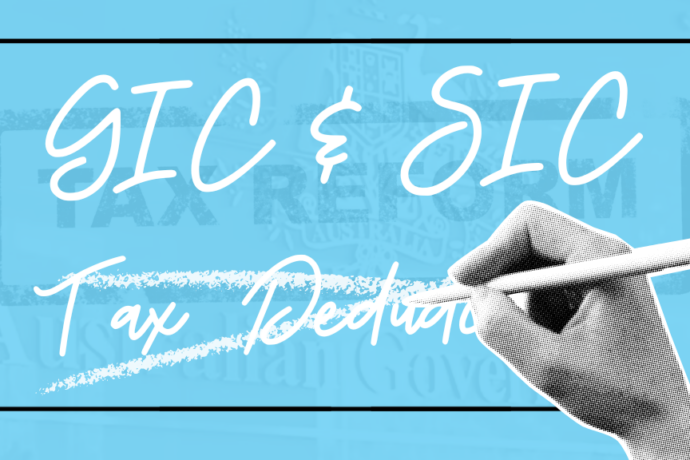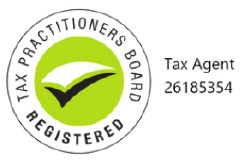Why Accountants Need to Partner with Tax Debt Specialists
Home » Blog » ATO debt management » Why Accountants Need to Partner with Tax Debt Specialists

Table of Contents
In my 11 years as a tax debt negotiator, I’ve seen how complex and stressful ATO enforcement actions can be for businesses. As accountants, you’re often the first point of contact for clients facing tax debt. While you’re experts in financials, tax advice, and compliance, tax debt is a different beast altogether.
With ATO enforcement ramping up, managing tax debt now requires specialist knowledge and strategic action. Simply advising on compliance or payment plans is often not enough. Engaging a tax debt specialist can mean the difference between resolution and escalation—protecting both your clients and your professional relationships.
Here’s why I believe it’s crucial for accountants to involve tax debt specialists and how it can lead to better outcomes for everyone involved.
The Growing Threat of ATO Enforcement
Over $60 billion in unpaid tax is owed by Australian businesses, and the ATO is cracking down.
Garnishee notices, director penalty notices (DPNs), statutory demands, and even reporting debts to credit reporting agencies are becoming the go-to enforcement methods.
For example:
- Garnishee Orders: The ATO can intercept your client’s bank accounts or payments from debtors, disrupting cash flow instantly.
- Director Penalty Notices (DPNs): Business owners can be held personally liable for GST, PAYGW and Supaerannuation.
- Statutory Demands: A precursor to winding up a company, statutory demands are a serious legal step that can threaten business continuity.
- Credit Reporting: The ATO now reports tax debts exceeding $100,000 and overdue by 90 days to credit reporting agencies. This impacts business reputation, restricts access to funding, and can undermine supplier relationships.
One recent client received notice of a credit reporting action before even realising their payment terms had lapsed. This single notice caused their bank to reassess an existing loan facility, almost derailing their operations.
The ATO has fundamentally changed its approach in the past 18 months. What worked before may no longer protect businesses—or their directors—from serious consequences.
Why Tax Debt Management Requires More than Just Accounting
Accountants excel at tax compliance and financial reporting, but tax debt requires a different skill set:
- Navigating complex ATO legal procedures.
- Negotiating manageable payment terms.
- Preventing escalated enforcement actions like garnishee notices, statutory demands, and credit reporting.
For example, we worked with a small business that had a significant PAYG withholding debt. The ATO had already flagged them for credit reporting.
By intervening quickly, we negotiated a tailored repayment plan, removed significant general interest and penalty charges, and avoided their debt being reported—safeguarding their reputation and protecting their supplier credit terms.
The Risk of Ignoring Tax Debt
When tax debt isn’t addressed strategically, it can escalate quickly:
- Personal Liability: Directors risk personal assets due to unpaid tax debts.
- Business Disruption: Legal actions, like statutory demands, can bring operations to a halt.
- Insolvency: Manageable debts can spiral into liquidation if left unchecked.
- Credit Impact: The ATO’s credit reporting measures can significantly damage a business’s ability to secure funding or maintain supplier relationships.
For instance, a client of ours faced immediate reputational damage when their tax debt was reported to a credit agency. This not only impacted their ability to secure a much-needed loan but also led to suppliers demanding upfront payment instead of extended terms.
Why Accountants Should Involve Tax Debt Specialists
Partnering with a tax debt specialist can transform outcomes for you and your clients. Here’s how:
- Expert Negotiation with the ATO: Specialists have deep knowledge of ATO legal processes and programs, helping achieve reduced penalties, interest charges, and extended payment terms. They also know how to prevent escalated measures like credit reporting or statutory demands.
- Strengthen Client Relationships: Clients trust you more when you take proactive steps to protect their financial future. Involving a specialist demonstrates commitment to their best interests.
- Save Time and Increase Efficiency: Offload the heavy lifting of ATO negotiations to focus on high-value client services. One accountant partner saved dozens of hours by referring clients to us while growing their advisory revenue.
- Minimise Risk: Specialists protect clients from enforcement actions like DPNs, statutory demands, and credit reporting, helping avoid personal liability, business shutdowns, and reputational harm.
When to Call a Tax Debt Specialist
Here are clear signs that it’s time to involve a specialist:
- ATO Enforcement Actions: Garnishee orders, DPNs, statutory demands, or credit reporting.
- Unmanageable Payment Plans: When ATO terms strain cash flow or growth.
- Rising Penalties: Escalating interest and non-compliance charges.
- Business Disruption: Tax debt interfering with operations.
- Client Requests: Clients specifically ask for tax debt expertise.
Choosing the Right Specialist
Look for a tax debt specialist with:
- Proven success resolving tax debts.
- Comprehensive understanding of ATO processes.
- Transparency about their approach and qualifications (e.g., TPB registration)
Takeaway
Tax debt doesn’t have to mean the end of a business. By partnering with a tax debt specialist, accountants can safeguard clients, strengthen professional relationships, and achieve better outcomes for all.
If your clients are facing tax debt, don’t go it alone. Engaging a specialist ensures they get the resolution they need—and the peace of mind they deserve.





